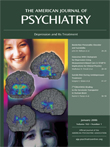Clinical Manual of Addiction Psychopharmacology
This manual is an excellent and comprehensive review of current knowledge on the psychopharmacology of addictive disorders. It consists of 10 chapters; nine address one class of substances each, and the tenth focuses on psychosocial treatments. Chapters are written by experts with extensive backgrounds in addiction treatment and research and include sections on the history and epidemiology of addictive disorders, diagnosis, pharmacokinetics, pharmacodynamics, neuropharmacology, treatment outcome, and other topics of interest to clinicians, researchers, administrators, and students. Extensive reference lists are found at the end of each chapter and include the most current as well as some of the older, important studies, with a few reaching back into the 1950s and 1960s. The chapter on psychosocial treatments is OK but does not have the depth and breadth of the others; it does not provide much historical information and misses points on therapist differences, psychiatric severity, the impact of the control condition on study outcome, the value of drug counseling, and the role of these treatments in HIV risk reduction.
I found the chapter on hallucinogens particularly interesting; there are so many of them with such varied “street” names and possible effects. I have always wondered why so many people have been so willing to take so many drugs with such profound, unpredictable, and potentially toxic effects.
This comprehensive, systematically organized manual is the best summary I have read on pharmacotherapies for the different addictive disorders and their various states of intoxication, withdrawal, and relapse prevention. The volume of work that has been done is impressive, as is the dispassionate way in which the data are presented. The end result is a manual of great depth and breadth that strikes an excellent balance between the scientific basis for using pharmacotherapies to treat addictive disorders and the results of treatment outcome studies and practical aspects of treatment. This manual is a valuable resource for those whose primary interest is research, treatment, or simply learning about the psychopharmacology of addiction.



